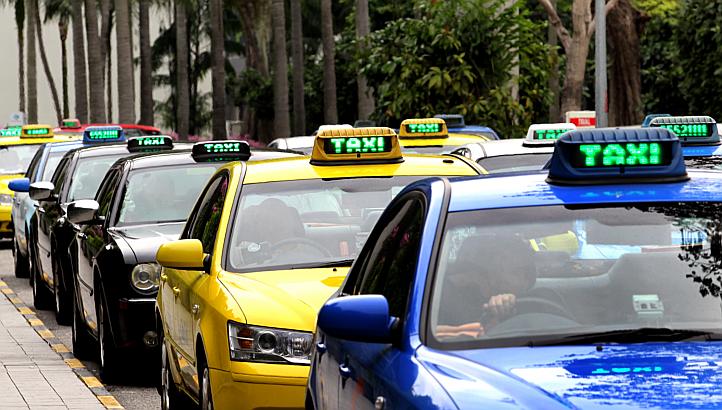Taxi companies here spent most of 2015 fretting over the growth of third-party taxi-booking apps like Uber and GrabTaxi.
ComfortDelGro even partnered up with new taxi-booking app entrant Karhoo in November 2015, one of the first local taxi company to partner any third-party taxi-booking app in Singapore.
The threat of third-party taxi-booking apps to the bottom line of taxi companies is real. They offer convenience to passengers in the form of one application reaching out to drivers from multiple companies, effectively cutting out taxi companies as the middleman in taxi-bookings. They also encourage cashless payment where everything is charged to the credit card at the end of the trip.
Visa's fight with taxi companies and its re-entry as a payment option
In 2014, credit card company Visa had a very public spat with taxi companies as it wanted to uphold its "no surcharge protection policy".
Taxi companies charge passengers 10% of the total fare as a form of administrative fees when they pay fares using a credit card, this charge does not go to the driver. Credit card companies earn 2-to-3% of fees transacted.
A ComfortDelGro spokesperson told MyPaper in 2014 that bank fees, telco charges and costs were incurred in investing in (about $10 million) and maintaining the cashless payment terminals and services.
Visa, in 2014, withdrew itself as a payment option from all taxi companies.
However, from Jan. 1 2016, Visa is back as a payment option in ComfortDelGro taxis and together with the 10% surcharge.
How justifiable is this surcharge?
Perhaps in 2014 and the years before that, it would have made sense for taxi companies to recoup the cost incurred to set up this payment network through charging passengers.
But this is 2016. Third-party taxi-booking apps do not incur a surcharge if the passengers pay by credit cards.
The Visa country manager for Singapore and Brunei Ooi Huey Tyng told Channel NewsAsia that "the popularity and wide availability of third-party taxi booking apps have provided cardholders with the choice to use their Visa cards for payments without incurring a surcharge," and Visa has seen close to 700,000 transactions made on third-party booking apps monthly, without a surcharge.
What value is the taxi company delivering to the passenger that warrants them to pay this 10%? Convenience of not using cash? Would the passengers not get this convenience when they use third-party taxi booking apps instead?
Taxi companies have a long way to go to play catch up
There are a few reasons why it is unlikely that the Land Transport Authority (LTA) or Ministry of Transport (MOT) will drive apps such as Uber and GrabTaxi out of the market.
The apps, which help pair passengers and taxis more efficiently and effectively, have improved at least part of the taxi supply and demand problem during the peak hours. This was an area that convulated fare structures and taxi regulations did not fully solve.
Why would the Government discourage third-party businesses from helping to improve a system?
Taxi companies have to improve themselves to deliver better value to passengers than what the likes of Uber and GrabTaxi are able to currently.
Charging a credit card surcharge is certainly not the way.
Will taxi companies go bust because of Uber and GrabTaxi?
Only if they behave with oligopolistic tendencies.
If they lobby the Government to drive out third-party taxi-booking apps.
Taxi companies have multiple streams of revenue including taxi rentals, selling diesel to taxi-drivers, booking fees, and advertising.
It just happens that others have managed to eat into its booking fees pie and doing a better job at it.
And if they want to pass on other business costs to passengers like the way it does with credit card surcharges, there will always be new entrants to the market who can do things cheaper, better, and faster.
If you like what you read, follow us on Facebook and Twitter to get the latest updates.
If you like what you read, follow us on Facebook, Instagram, Twitter and Telegram to get the latest updates.
